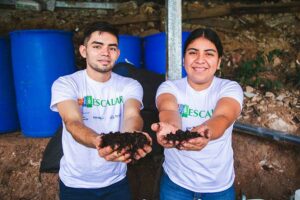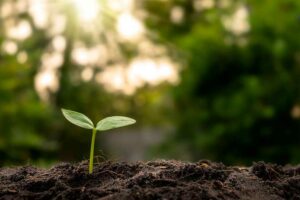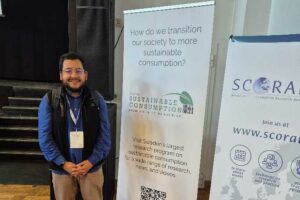Honduran families forge the path to sustainable cocoa production
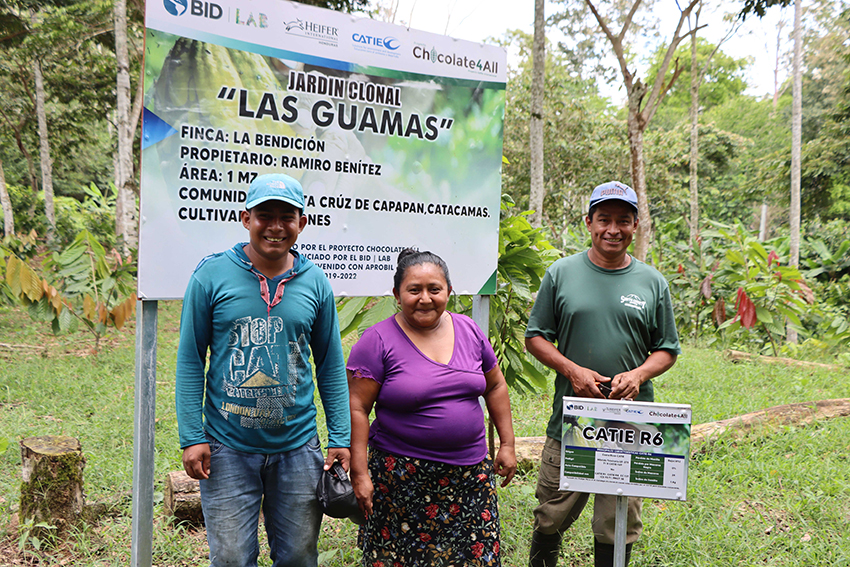
- They diversified their cocoa plantation and applied good agro-forestry and management practices, thus obtaining better production.
In a department of Honduras called Olancho, the families of Ramiro Benítez and Ángela Castro began their quest for profitable and diversified cocoa production under the guidance and advice of the technical staff of the Chocolate4All project, even though, according to data from the Forest Conservation Institute (ICF, its Spanish acronym), this department has lost about 39% of its forested area.
With great enthusiasm and conviction, these families opened their cocoa plots to the project's technical staff and began to experiment to see if what they were told about diversifying their cocoa plantations and applying good agro-forestry and management practices would bring better results, since they would produce more and, in addition, protect nature.
So, they began the journey, which they say was not easy, but full of learning and promising results.
"We didn't know anything about cocoa before, but through these organizations that have supported us, we have been learning and every day this makes our work easier and helps us to have better knowledge and to be able to maintain the cocoa plantation well. It is through the field schools that teach us what to do to the plant and how to do it; but first, and it is very true, we have to plant cocoa in our hearts. For example, this clonal garden that we planted and take care of after only a year and a half is already starting to produce, so we hope to have a good harvest in another year. That makes me happy, it motivates me to continue working," said Benítez.
As don Ramiro says, these families learned mainly through the project's Field Schools (ECA, its Spanish acronym). In total, more than 1,100 cocoa farmers were trained in sustainable cocoa farm management, providing them with the knowledge and skills necessary to analyze, design, redesign and better manage their cocoa agro-forestry systems. They were also taught about the importance of a uniform shade canopy and essential good practices such as pruning, integrated disease management, fertilization, as well as cocoa quality to access new markets.
These families are now implementing these practices on their farms, which has favored the establishment of new cultivation areas and will further increase the productivity of their plots. In addition, by introducing cocoa into agro-forestry systems, the crop has become more sustainable because it generates other resources such as fruit, wood and firewood.
As leaders along the way, Ramiro's and Angela's families also now have clonal gardens that will serve as a source of quality, certified and highly productive genetic material for them and other cocoa farmers in their communities and surrounding areas.
For these families, learning about the different aspects of cocoa cultivation and receiving a diploma represented a great opportunity to improve their production and increase their income, but also a life experience.
"The experience of participating in a Field School has been very nice because here, for example, we are 11 producers between men and women and when the ECA has been done we have all walked together and we learn about the subject of plants. We like it because we see the progress of the land and well we not only see our own results, but we also see the results obtained by other people, and as a family because the cultivation of cocoa is nice because not only one person works, but the whole family can work together. Cocoa is something very valuable for us," said Castro.
Ángela's son, Melvin Ortiz, said that what he likes most about cocoa production is the green environment. "I love nature and I like to contribute in that way, but whenever one takes ideas or plans to cultivate, one also expects to receive an incentive that, in this case, is received from the cocoa harvest, and learning to manage the cocoa plantation well is a good incentive, so there are two motivations," said Ortiz.
The Chocolate4All project worked in Olancho with these and many other cocoa producing families for more than three years, contributing to the growth of the sector in the area, mainly through technical assistance, capacity building and transfer of knowledge and innovative methodologies.
Chocolate4All was executed by Heifer International Honduras and financed by the Inter-American Development Bank (IDB), with technical support from CATIE (Tropical Agricultural Research and Higher Education Center) and the Universidad Nacional de Agricultura de Catacamas (UNAG), in their field interventions and training.
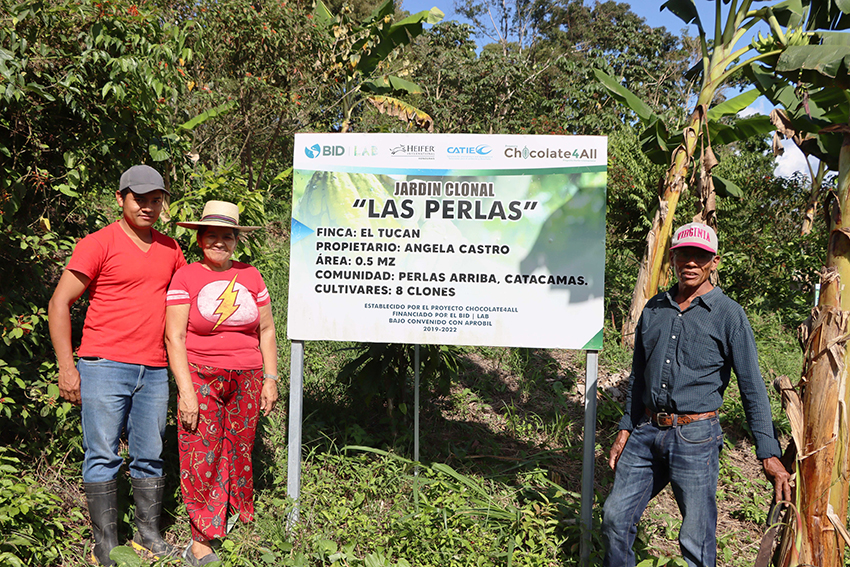
More information:
Rolando Ceda
Leader
Agroforestry and Coffee and Cocoa Genetic Improvement Unit
CATIE
Written by::
Karla Salazar Leiva
Communications Officer
Information Technology and Communication
CATIE
Carlos Rosales
Manager
Chocolate4All Project
Heifer International
Tag:cacao, Chocolate4All, familias, Honduras

